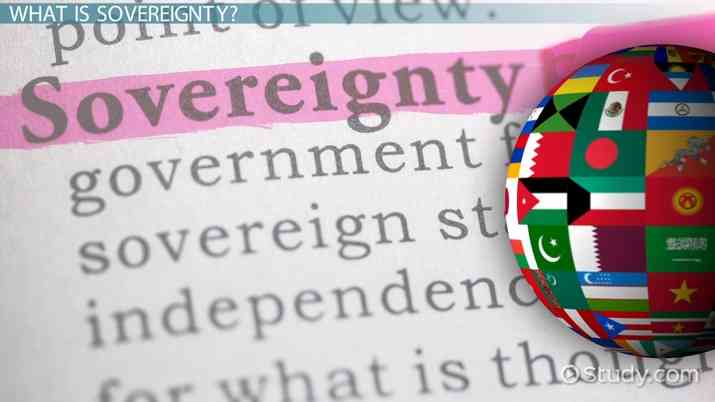
WE live in a world of paradoxes. We live in a world where we want our status as individuals to be recognised and respected. But we also live in a world where we want to be part of the global community. Telecommunication and global governance have connected us economically, politically and socially. As individuals, we are part of a global village. This means that there are no boundaries when it comes to communication and relationships. We can connect with anyone, anywhere in the world, at any time.
Is it possible to claim sovereignty in a context whereby it is more appealing to be a member of a regional or global village? But each village has a leader. Does that mean being a global citizen one must cede their rights and power as a sovereign individual?
Sovereignty is the defining authority within individual consciousness, social construct, or territory. Sovereignty entails hierarchy within the State, as well as, external autonomy for States. In any State, sovereignty is assigned to a person, body, or institution that has the ultimate authority over other people in order to establish a law or change existing laws. In political theory, sovereignty is a substantive term designating supreme legitimate authority over some polity. In international law, sovereignty is the exercise of power by a State.
Meanwhile, globalisation refers is the process of interaction and integration among people, companies, and governments worldwide. Globalisation used to be primarily an economic process of interaction and integration that is associated with social and cultural aspects. However, disputes and international diplomacy are also large parts of political globalisation which is the growth of the worldwide political system, both in size and complexity.
That system includes national governments, their governmental and intergovernmental organisations as well as government-independent elements of global civil society such as international non-governmental organisations and social movement organisations. One of the key aspects of political globalisation is the declining importance of the sovereign nation-State and the concentration of power in some States or global institutions as well as the rise of other actors on the political scene. Some scholars have called this the expansion of a global political system, and its institutions, in which inter-regional transactions are managed.
Sovereignty is one of the most vital concepts in international relations, mainly enabling States to make autonomous decisions and to exercise their right as a member state of the global community. However, it also follows that when an entity secures membership of a group, it cedes part of its powers to the governing body of that group. That technically means the entity has lost part of its autonomy over certain aspects of its life.
For these reasons, some scholars are of the view that sovereignty in the context of global governance is becoming problematic. Other scholars have argued that sovereignty is effectively over — calling it an old-fashioned concept that must die and be buried given how global politics has panned out over the last three decades. They cite examples of how hegemonies have been central in making or influencing global decisions and actions which have attempted to homogenise the global society. They also include how the economy has become so globalised to the extent that it uses one global currency as a reference and a common trading system.
For those who follow this school of thought, the debate tends to be limited to the advantages of globalisation instead of looking at its impact on poor countries. Part of that argument is that globalisation is the continuation of colonisation of poor countries via global governance institutions and their policies and attributes the current widening economic gap and deepening poverty to globalisation.
- Celebrating importance of mother languages
- The artist in environmental justice
- Celebrating importance of mother languages
- The artist in environmental justice
Keep Reading
Other scholars have insisted on the importance of sovereignty as the last bastion of national protection from external interference and the defining character of a nation and the identity of its people. Those who do so have used recent developments such as Brexit — Britain’s exit from the European Union — and the protectionist policies implemented in recent years. Even with this group of scholars, there is glaring ambivalence over the advantages of nation-State vs pooled sovereignty.
The debate on what approach to take lies in power and control. There are instances where being part of a group favours only the powerful members of that group at the expense of weaker nations. There are also instances when retaining sovereignty gives member States powers and more political and economic influences. For example, in situations where states are forced to vote or decide along group lines instead of expressing their individual view on issues based on their understanding of issues.
Other scholars pine that respect for nation-state sovereignty is the most significant norm in international politics, a norm with the purpose to minimise war and facilitate peaceful relations among states. Sovereignty means States have the ultimate authority over what happens inside their borders, and that foreign powers have no right to interfere in their politics.
- Tapiwa Gomo is a development consultant based in Pretoria, South Africa. He writes here in his personal capacity.







